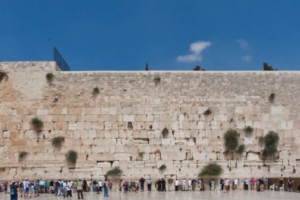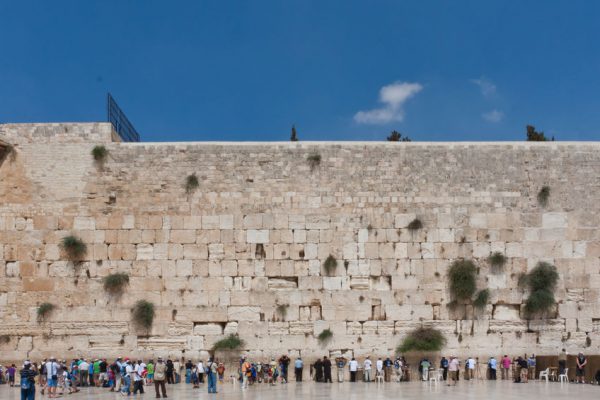by Rabbi Bryan Kinzbrunner
Wilf Campus Chaplain
 Tisha B’Av, the 9th of Av, is the day on the Jewish calendar that memorializes the tragedies of Jewish History. Jewish tradition explains that the Two Temples that stood in Jerusalem were destroyed on that day. Jews view the destruction of the Two Temples, the first in 586 BCE and the second in 70 CE, as watershed moments that encapsulate all subsequent tragedies of Jewish history. The customs of the day include the reading of the biblical book Lamentations, the words of the prophet Jeremiah upon seeing Jerusalem destroyed by the Babylonians, and poems of elegy which are read to provide reflective texts that express the pain of various tragedies in our collective past.
Tisha B’Av, the 9th of Av, is the day on the Jewish calendar that memorializes the tragedies of Jewish History. Jewish tradition explains that the Two Temples that stood in Jerusalem were destroyed on that day. Jews view the destruction of the Two Temples, the first in 586 BCE and the second in 70 CE, as watershed moments that encapsulate all subsequent tragedies of Jewish history. The customs of the day include the reading of the biblical book Lamentations, the words of the prophet Jeremiah upon seeing Jerusalem destroyed by the Babylonians, and poems of elegy which are read to provide reflective texts that express the pain of various tragedies in our collective past.
In reflecting on communal tragedy and suffering, each of us is challenged to emotionally connect to events that seem to be mere relics of history. While Tisha B’Av is a day of memory that encompasses all tragedies past and present, and for many, there is opportunity to search out and speak with those around us who have survived displacement, destruction, persecution and forced migration, it can still appear to be an impossible task to truly grasp the depths of pain felt.
To create this emotional connection allowing one to truly mourn one’s collective past, the compilers of these elegies read on Tisha B’Av included one whose focus moves away from the communal to share the story of one family’s tragedy. Two Roman slave owners meet and decide to marry off their two newly acquired young slaves in marriage. Seeing that the male slave was handsome and the female was beautiful, the owners presumed that the matrimony would lead to high quality children that will garner a high price on the slave market. The two slaves are put together in the same room to await the wedding the next day. Throughout the night leading to the forced marriage, both slaves cried out over their forced fate. When dawn arrived, and they could see each other for the first time, they discover that they are really brother and sister. The story ends with them dying in each other’s arms.
In reading this episode, one begins to grasp how a communal tragedy really is a series of individual tragedies rolled into one. When looking at events as having merely occurred in the past, we often lose sight of individual suffering, only seeing the big picture. The goal of Tisha B’Av for the Jewish community is to be a day when collective mourning transforms into an individualized sense of how tragedy effects each of us. May Tisha B’Av be a day of meaning and may we each see the fulfillment of the penultimate verse of the book of Lamentations, “Return us back to You, G-d, and we shall return, renew our days as of old.”

